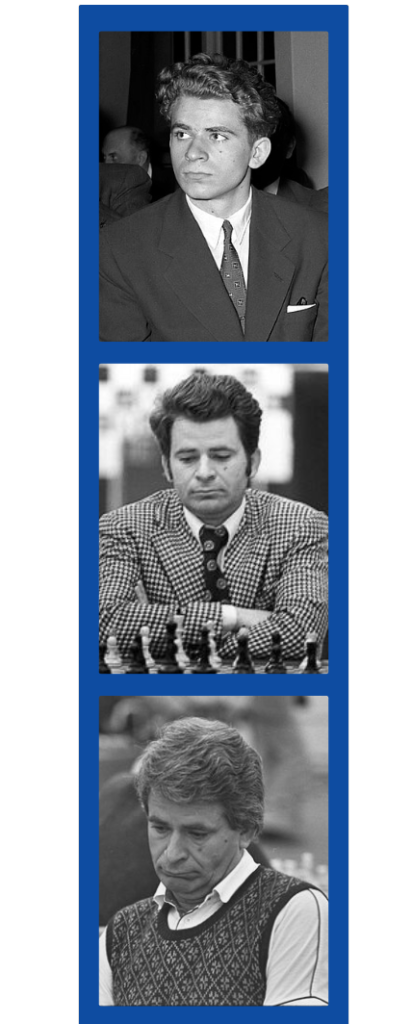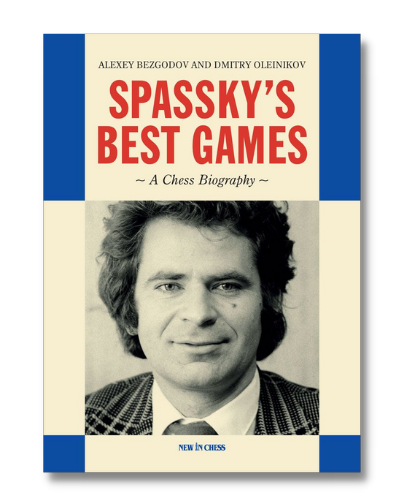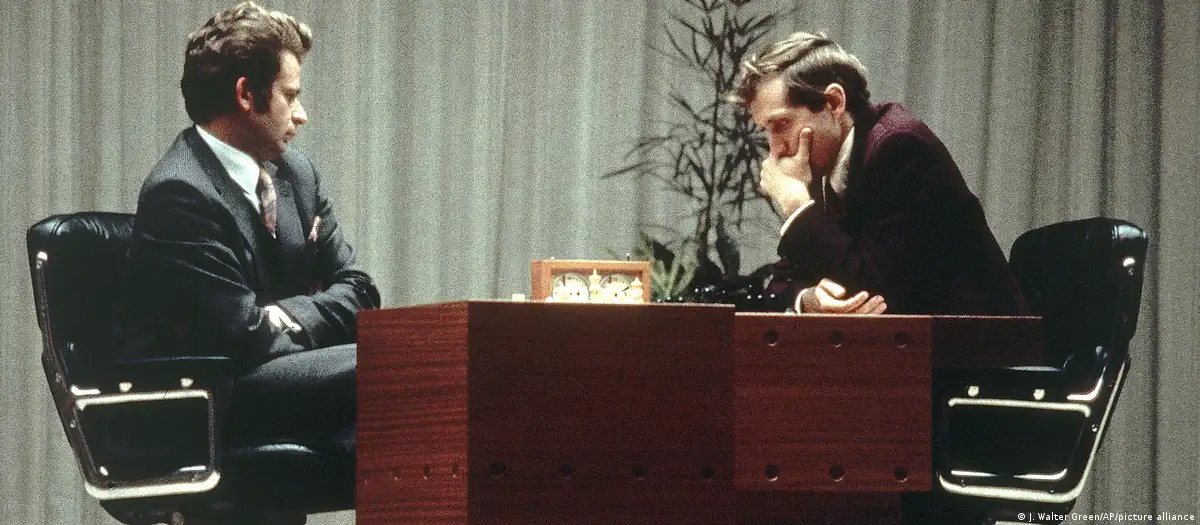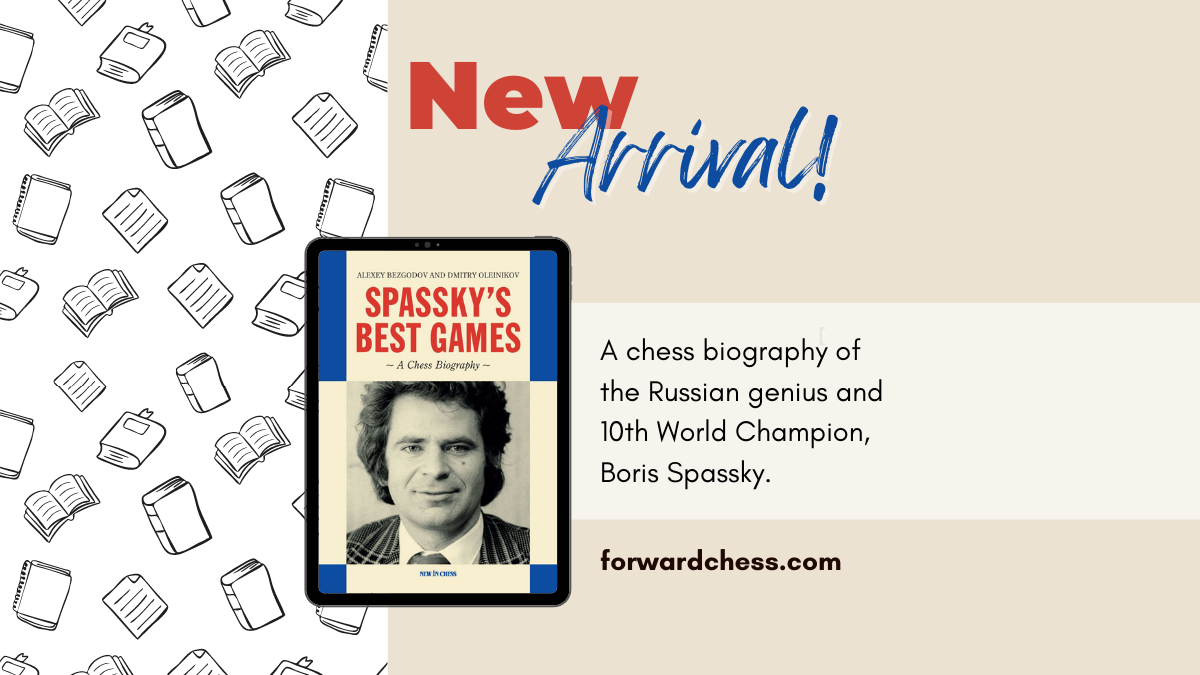A look at the legendary 10th World Champion and Russian Grandmaster Boris Spassky, and the new release Spassky’s Best Games.
Boris Spassky
The name Boris Spassky is well known not only in chess but throughout the world. He gained international fame during the Cold War era as the World Champion from 1969 to 1972 and of course for his memorable “Match of the Century” 1972 World Chess Championship showdown against Bobby Fischer, which he ultimately lost.
Spassky is a highly respected chess figure for many reasons; his impressive career, universal playing style, contributions to chess theory, and overall gentlemanliness.
Starting out as a young Russian prodigy, Spassky drew attention as a promising talent when at the age of 10, he beat Mikhail Botvinnik in a simultaneous exhibition. This followed many more successes in his career, from winning the World Junior Championship in 1955, multiple USSR titles, qualifying for his first candidate’s tournament in 1956 which earned him the Grandmaster title (at 18 years old, he was the youngest to attain this), to eventually winning his first Candidates in 1965.
Spassky’s journey to the World Champion throne was not an easy one – he played multiple Candidates tournaments, lost his first challenge match against Petrosian in 1966, and then finally beat Petrosian in 1969 to claim the title.

Spassky’s Best Games

The new book release, “Spassky’s Best Games” is a chess biography and celebration of the brilliant games that Spassky played throughout his life. Written by Russian Grandmaster Alexey Bezgodov, and Director of the Chess Museum in Moscow Dmitry Aleynikov, the book is divided into two parts. The first part is a biographical look into Spassky’s life and career which includes many photographs and game snippets and tactics, such as the following one from the 1966 Petrosian-Spassky World Championship match. White to play:
Moreover, the reader will get to know Spassky as a person. You might be familiar with a top player such as Spassky’s career, automatically placing him on a pedestal as one of the greats in chess to look up to, but it is something else to learn about his gentle and kind demeanor, how he respects his fellow players, how he articulates his love for chess. At the end of the day, world champions are humans too – and this book enables you to see and admire the human side of Spassky.
The second part of the book comprises over 60 of Spassky’s best games, annotated by Alexey Bezgodov. An entire section is dedicated to showing Spassky’s contributions to chess: from opening theory to attacking on open files, there are many instructive lessons to learn from Spassky’s games. His style encompasses both an understanding of strategy and tactics, and as Kramnik states in the foreword; Spassky “was probably the first player who showed this important skill: to control the rhythm of the game.”
The authors took the time to grant each game a lesson summary, such as the following unannotated examples:
Spassky’s Best Games: Game Example 1
This first example is from a game played by a twelve-year-old Spassky, with a d4-d5 opening idea for White that remains an important idea today.

Spassky’s Best Games: Game Example 2

There are many more lessons to learn from Spassky, which is now easily laid out to read and understand. To end off this glimpse of what the book has to offer, here is a wonderful quote by Spassky on the most important thing in chess:
“At all times, there has only ever been one requirement for a chess player, which is love for chess. Moreover, you need to love naturally, with passion, just like people love art, drawing, music, and even business. This passion seizes you and plunges into you.”
Spassky’s Best Games: Table of Contents
Part I: A brief biography
- Chapter 1 Zak: first steps
- Chapter 2 Forward, Kazimirich!
- Chapter 3 ‘Vater’ Bondarevsky
- Chapter 4 A promised three year wait
- Chapter 5 The first setback
- Chapter 6 Sisyphus’ way
- Chapter 7 Boris the Tenth
- Chapter 8 Under the yoke of the champion’s laurels
- Chapter 9 Olympus awaits the storm
- Chapter 10 Slave of honour
- Chapter 11 Next stop: France
- Chapter 12 A one-legged dissident
- Chapter 13 Twenty years on
- Chapter 14 A favourable endgame
- Chapter 15 Unclear ending
Part II: Games
- Sundry Memories
- Games 1-15
- Games 16-30
- Games 31-45
- Games 46-61

Let us know what you think in the comments below, and don’t miss out on the special introductory offer!
Puzzle Solution:
1.Qh8! Kxh8 2.Nxf7+ picking up the Queen next.
- The Power of Pattern Recognition: The Woodpecker Method 2 - August 20, 2024
- Rock Solid Chess: Volume 2 - February 21, 2024
- Unsung Heroes of Chess - February 19, 2024
